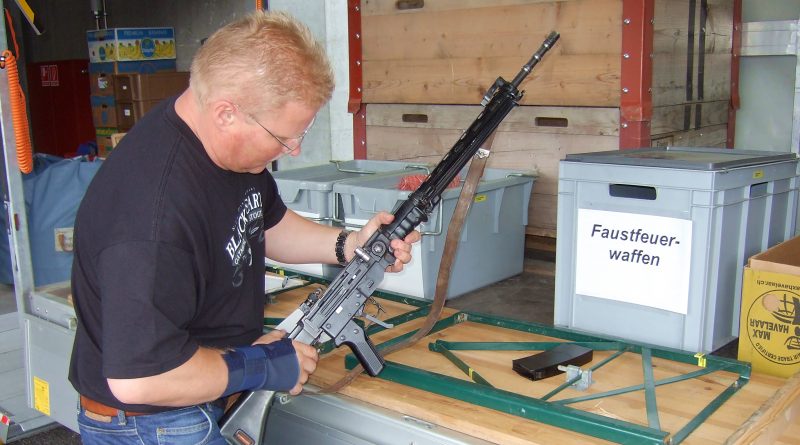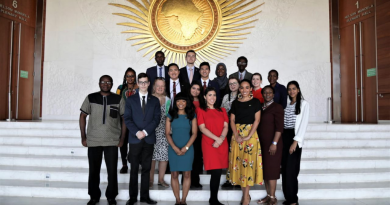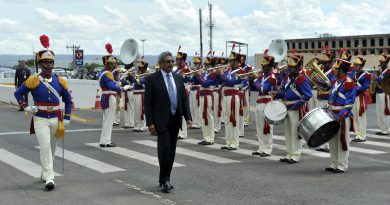Focus on Firearms: Switzerland
Axel Sontgerath
Staff Writer
In Switzerland, gun-ownership is something of a unique culture. There is a comfort surrounding firearm ownership that many would not find around the world. In the United States, it is often hailed as a success of liberal gun laws and the right to bear arms. Switzerland has the third-highest rate of private gun ownership in the world – behind the U.S. and Yemen, according to GunPolicy.org.
The small European country boasts this high gun-ownership ranking, yet Switzerland has a very low rate of gun crime, reports GunPolicy.org. Their last mass shooting occurred in 2001, when a gunman opened fire in the legislative body in the Canton of Zug, killing 14 people, as well as himself.
Gun-ownership in Switzerland stems from a deep historical background, which relies on one key factor: the fear of invasion. According to the Atlantic, the custom of owning guns is tied to the mandatory military service for Swiss men between the ages of 18 and 34. Along with this, men were allowed to keep their weapons at home in order to defend against any invading countries.
The fear of invasion arose from three critical wars in Europe during the modern period: the Franco-Prussian War, World War I, and World War II. During these three major European conflicts, Switzerland’s neutrality was constantly threatened. Consequently, the government and its people trusted each other with the protection of the country. As a result of this custom of keeping weapons at home for the defense of the country, a comfort around guns grew for the Swiss people.
In February 2011, a test of this comfort came in the form of a referendum that called for a national gun registry and for firearms owned by members of the military to be stored in public arsenals, The Atlantic reports. The referendum was easily defeated, with 56.3 percent of voters opposing the idea, says the BBC. This love of firearms does not just come from the adults, children are taught to love it too.
According to the Atlantic, Swiss children as young as 12 are taught how to shoot as well as the rules of gun safety. They even participate in prized shooting competitions. On the second weekend in September each year, about 4,000 girls and boys in Zurich, aged 12 to 16, take part in Knabenschiessen, a rifle marksmanship contest. The winner is honored with the title King of the Marksmen, the BBC reports.
In an interview, Swiss shooting instructor Michael Merki told the BBC that the shooting competition “teaches people to respect guns. Many hyperactive children come to rifle club. They learn to stand still, to concentrate for much longer, and it helps them get better results in school and in life.” This understanding of guns and their safety rules at an early age are the early catalysts in the custom of Swiss gun-ownership.
Another driving force behind gun-ownership in Switzerland is the restrictions of the government and the limits on the free circulation of firearms, says GunPolicy.org. Counterintuitively, regulation of guns in Switzerland is categorized as restrictive.
The Swiss trust their government more than Americans do, says GunPolicy.org. The feel a stronger need to aid their government in defending the country, rather than finding a hypothetical need to overthrow a tyrannical government. This leads to one of the main differences between the Swiss and Americans: the Swiss do not have any constitutional right to bear arms.
According to the Atlantic, the Swiss government has placed laws that make sure that background checks are mandated, fully automatic weapons are illegal, and military grade weapons are banned. Hunting weapons must be registered with the local Canton. All permitted firearms require a license for possession.
According to the Atlantic, the Swiss follow these regulations closely, and the effort pays off. According to a report from GunPolicy.org, the total deaths resulting from firearms in 2015 were 231, 47 of which were homicides. More strikingly, the estimated total number of guns (both licit and illicit) held by civilians in Switzerland is somewhere between 2.3-3.4 million. Swiss gun-related deaths are the highest in Europe, but U.S. gun-related deaths are three times higher than Switzerland’s.
In an interview with the BBC, Professor Martin Killias, director of criminology at Zurich University, stated, “”It’s like smoking. Less is more. I do not support outlawing guns; I recognize people have their hobbies, just as I have mine. But the fewer guns there are in cellars, attics and armoires, then that would be helpful, because there is a strong correlation between guns kept in private homes and incidents occurring at home – like private disputes involving the husband shooting the wife and maybe the children, and then committing suicide.”
Professor Killias was a supporter of the referendum that failed, stating to the BBC, “Forty-three percent of homicides are domestic related and 90 percent of those homicides are carried out with guns. However, over the last 20 years, now that the majority of soldiers do not have ammunition at home, we have seen a decrease in gun violence and a dramatic decrease in gun-related suicides. Today we see maybe 200 gun suicides per year and it used to be 400, 20 years ago.”
Overall, as liberal as the gun laws are in Switzerland, they are nothing compared to those in the United States – and the Swiss want to make sure their historical customs are not being seen in tandem with that of the U.S.’. In an interview with the BBC, Professor Killias states, rather irritably, “We don’t have a gun culture! I’m always amazed how the National Rifle Association in America points to Switzerland – they make it sound as if it was part of southern Texas!” Professor Killias went on to say that, “To shoot someone who just looks at you in a funny way – this is not Swiss culture!”




